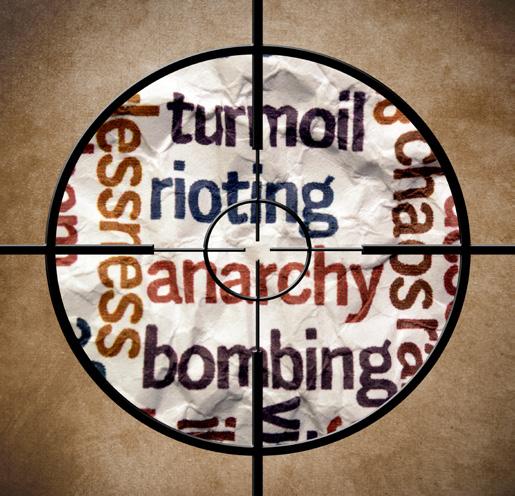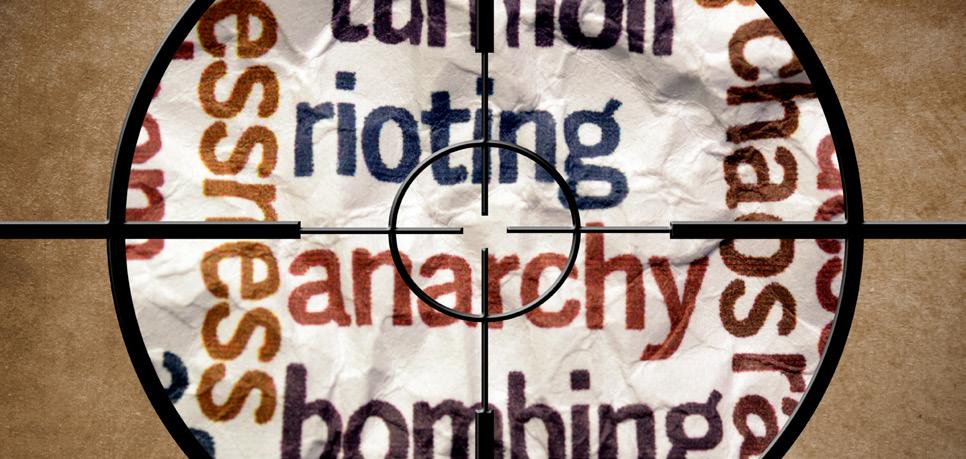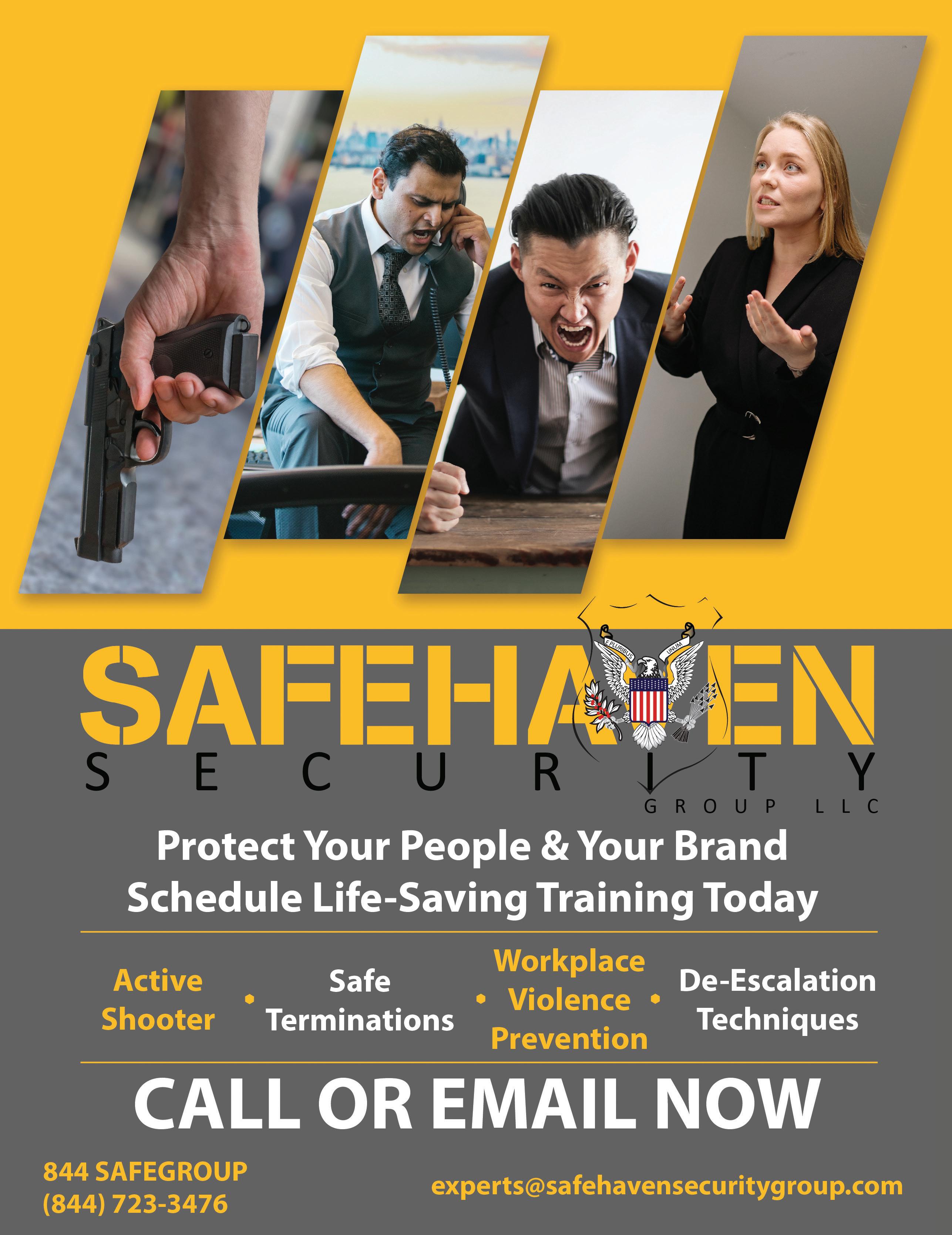
2 minute read
WARNING SIGNS for Workplace Violence
The experts at SafeHaven Security Group, a national threat management firm, are on a mission to keep people safe by sharing the warning signs of violence with all who will listen. This article is the second in a series of articles to help you recognize behaviors that might indicate someone is on a path to violence. If you notice someone who exhibits more than three of these correlates, please get help. You can reach out directly at 844-SAFE GROUP or safehavensecuritygroup.com.
Remember, the initial assessment is always free.
Warning Signs – LONER
One of the most oft-quoted statements in the aftermath of a mass shooting is some version of “He was a loner.” There is a reason for that. But before we dig into what that looks like, let me define the term. For our purposes, a loner is someone who doesn’t have a single, deep, meaningful, healthy relationship with another human. We are created to have relationships and live in a community. We were never meant to be alone.

We all need someone to care about, challenge, and hold us accountable; someone to talk to when we have problems. But the type of individual I’m talking about doesn’t have that. Many times, they don’t have that due to their own behavior. People have tried, but the person “runs them off.”
Just to be clear, we’re not talking about someone who is simply an introvert. An introvert is someone who, when they are stressed, needs time alone to recharge their battery. If not alone, maybe with one other person. As long as the other person doesn’t speak.
Just because a coworker prefers lunch alone in her car doesn’t make her a loner. As with all violence correlates, just being a loner doesn’t make someone dangerous. But when you see this one in combination with several others, please tell someone who can help.
Warning Signs – ESTEEM
Low self-esteem seems to be a common denominator in those who commit violent acts. Esteem is about value; these people don’t value themselves very much. Of course, if they don’t value themselves, how much do you think they value you? Probably not much.
It’s easy to destroy something you don’t value.
Warning Signs – BLAMES OTHERS

“That’s not my fault.”
That is a statement we have all made. Sometimes we even said that it wasn’t our fault when it clearly was our fault. It’s a human thing. But the folks we are talking about don’t just fail to take responsibility for their actions; they find someone else to blame.
“It’s Anna’s fault.”
We all know people like this. They blame others for their problems when they should be looking in the mirror. Because until they take responsibility, they can never improve their situation. So long as they focus on other people to fix their problems, their frustration will grow, as will their anger.
Warning Signs – DIMINISHING INHIBITORS

Think of the nicest person you know. Someone who is sweet and kind, that everyone loves. Now ask yourself this question: Do you suppose this caring and compassionate person ever wanted to reach across the table and just smack someone?!
Of course, they have. We all have.
But we generally don’t do that. Why? Because of the inhibitors and stabilizers in our lives. Things like a fear of the consequences, such as getting fired or prosecuted. Or maybe a moral belief that smacking people is wrong. Or the realization that you might get smacked right back!
There are elements in our lives that keep us from acting on our baser impulses. That’s a good thing.
But what happens when someone’s inhibitors and stabilizers start to fall away?
“I could never hurt anyone because it would make my wife so unhappy.” Divorce.
“I would never do that because of my kids.” Lost custody.
“I would never do that because my job is so important to me.” Terminated.
“I’ve got nothing left to lose.”
By TIM KECK Tim Keck, Senior Consultant Safehaven Security Group tim@safehavensecuitygroup.com www.safehavensecuritygroup.com
A person with nothing left to lose is a very dangerous person.
SafeHaven Security Group helps organizations learn warning signs daily and interpret them correctly to avoid violence. Let us help you. The initial assessment is always free.











